Melissa Moore's 'Life After Happy Face' Podcast Looks at Killers Through New Eyes
The true crime expert and daughter of the Happy Face Killer opens up to Marie Claire about destigmatizing the label of 'criminal's kid.'
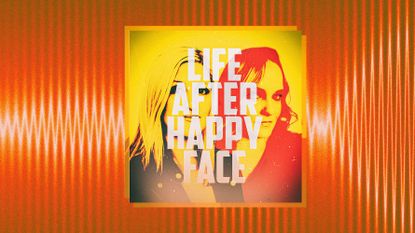

“Let’s swallow the darkness” is the term Melissa Moore and her collaborator, forensic criminologist Dr. Laura Pettler, use when it’s time to delve into the minds of the killers covered in their new podcast “Life After Happy Face.” That darkness is the stuff of Moore's Pacific Northwest childhood, as the daughter of serial killer Keith Jesperson, a.k.a. the “Happy Face Killer,” so nicknamed for the smiley-face notes he wrote. It has been the focus of her work writing about and reporting on true crime for The Dr. Oz Show and Monster in the Family. Moore’s 2018 “Happy Face” podcast told the story of her life as the daughter of a killer; this latest iteration dissects the true crime stories American audiences are so obsessed with, but rather than giving attention to the predator, Moore and Pettler are looking through the eyes of family members and loved ones—of the victims and the killers. In anticipation of today's premiere, Moore spoke with Marie Claire about expanding the definition of victim, what it’s like reconnecting with her incarcerated dad, and how she finds safety in a seemingly precarious world.
Marie Claire: You had talked about your own story to us, on TV, and in books like Whole: How I learned to Fill the Fragments of My Life With Forgiveness, Hope, Strength, and Creativity and Shattered Silence: The Untold Story of a Serial Killer’s Daughter. How did your first podcast change your life?
Melissa Moore: Before the podcast, I mostly worked making daytime true crime segments, but I had somewhat removed myself from my own story. And that was intentional, emotionally, because I did carry this guilt of, every time I tell my story, I'm giving attention to my dad. I struggled with that. But I met with Don Findlay [son of Jesperson’s victim Julie Ann Winningham]. He gave me, basically, his blessing to continue my work telling my story. That liberated me.
What a lot of people don't know is that when I came forward with my story way back in 2008, it was amazing because I started getting emails and letters from people that had a killer in the family. They dealt with the same stigma, the same issues, and were basically underground. We kind of created this club, I would say. We would talk to each other and support each other. Sometimes I would hear something that one of the kids of a killer was going through and I would connect them to another person I know had that same [issue]. It's kind of like a grief club but in a really unique way.
There are all these questions that people are coming to me with and all these stories of other people who have lived with a killer. For the new podcast, I wanted to bring them to a place where I can share their story. I wanted to have those private conversations that I was having, but on a public forum now so that can normalize for them their experience and break down the stigma.
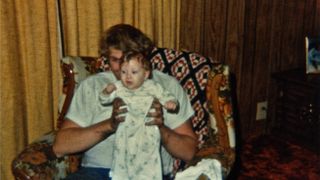
The author as a baby with her father, Keith Jesperson.
MC: What does “normalizing” mean to you?
MM: When I tell people my story or other people tell their story, at first, somebody will say, "Well, you seem so normal." These are things that we didn't choose, they're out of our control, so there's a shame in talking about it. The second one is, "How did you not know?" By hearing more stories, people would realize that [the families and friends of killers are] as blindsided as law enforcement and the victims.
Stay In The Know
Get exclusive access to fashion and beauty trends, hot-off-the-press celebrity news, and more.
MC: When people say, "How could you not know?” it's like wishful thinking that you can ever truly know other people. Even in a totally different context—like if you have a breakup: Oh my God, I thought I knew this person. I loved him. I think people want to believe they really can know other people, but on a certain level, you can never truly know people.
MM: If somebody doesn't want you to know them, they're not going to show you that. That's exactly what this is really about. With my dad, he didn't want us to see that side of his life and so therefore we didn’t. There were points where there was “leakage,” as they call it, where the whole [other side of his] life started to leak out. Ultimately, in affairs and in crime cases, [you see] that you can't live a clean double life.
MC: How do you ever trust anyone again?
MM: I'm going to speak from my own experience. As a woman, we're conditioned to have no boundaries and give our whole entire world—our being, our love, our nurturing, our affection—with no restriction. So what I have found, after my father and after my divorce is that, actually, what society told me that I need to do as a female is not smart for me, in the sense that my whole world was entangled with my former husband or with my dad. So, with my dad I was born into that situation. What I love about being older and going through this is that I can say: Here's where you end and where I begin. I don't like the word boundary because I think people have a lot of associations with it. They overuse it. But what I have found is just, how do I feel safe? And so that's what I would ask. What makes you feel safe and secure? Does that mean having your own money? Does that mean having options to leave an environment that doesn't feel good to you? Does that mean having privacy with your phone? Does that mean, in my case with my dad, even having a relationship?
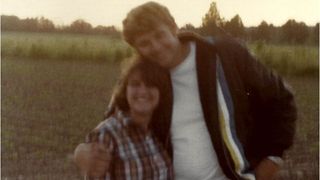
Moore’s parents in 1978.
MC: You two haven’t spoken in years.
MM: So he wrote to me and he asked for a relationship. He [says he’s] going to die. He found out about my mom's passing—last April on my dad’s birthday (isn’t that weird?). She was 63. Her passing has changed my perspective on my dad—radically, really fast. So he wrote this letter and, in the past, I probably would have never opened it. Normally I would be really nervous, but this time it was more of, “I'm curious.” Because whatever he says to me is exactly what we just talked about. He doesn't even know who I am. He hasn't been a part of my life for decades. He hasn't raised me. I stopped seeing him when I was 16; I'm in my 40s. I'm not the same person. I'm in the process of coming up with a letter I want to write back, but what's hard about that is that in responding to a narcissist or a psychopath, they think that they're the center of your universe. So my dad thinks that my world revolves around him, but if I say it doesn't, it's a contradiction. I feel like silence is the only best response, but I'm starting to come up with some questions that I'd like to ask him. So I've been putting those together in a notebook, just writing them down.
I want to know more about his life. I’m curious about it, just because he was so effective at living this double life. I want to know: Did he wrestle with it? I know the answer to some extent is that he probably didn’t. It wasn't until my mom passed when I pulled out this picture of my mom and my dad when they were first together. When you look at this picture, you think that these are two people deeply in love, facing the world together. And it’s a beautiful picture of my mom, smiling with that golden light, and then my dad is holding her, like he's protecting her. I always wonder when I look at the picture: Could there have been another path?
MC: What do you mean?
MM: Where he did protect her, where he protected us, where he lived with the psychopathy and found a way to use it in a constructive way. Like, he talked about being this “protector,” where he used the abuse that he endured as a child to protect other people versus become a predator. When I see that picture, it tells me there probably was another path.
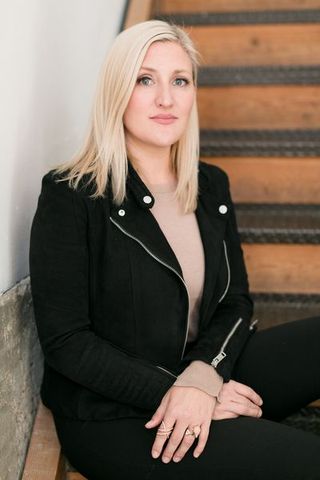
The author today.
MC: Tell me a little about the new podcast.
MM: So the first case that we're doing is the Jodi Arias case and what I'm doing differently about that case is I've interviewed [Arias’s victim] Travis [Alexander]’s best friend Chad Perkins, who was there to witness the entire unfolding of his relationship with Jodi. His experience is that Travis had come to him and explained to him that he believed Jodi was going to kill him. We talked about being a man in domestic violence and how men don't really have the verbiage to use that with their masculinity, to express that they're being abused without looking weak to other men. My intent is to tell these stories that we think we know, but from a different point of view, the point of view of a survivor, somebody who's related to or lived with the killer or the victim, and they know this story from their own experience and how it changed their life. For Chad, the death of his best friend put him on a whole other life path.
MC: After you’ve done so much thinking about your past and other people’s lives, do you have any words of wisdom?
MM: The biggest change that has happened for me is questioning why I do some of the things I do. I feel I've taken away the obligations that other people [impose on me]. I really am my own advocate. That's what I want to give to women: It’s okay to not fit the mold. If it doesn't fit what makes you feel safe, then that's okay. Looking at my mom's life, she did a lot of things out of obligation. She just said “yes” to things. I did that in my marriage and I did that with my dad. Even as a teenager, I would feel this intuition rising up and telling me to do something different, but I thought other people must know more than me. But you know at the end of the day what's right for you, whether it makes sense or not. I mean, with my dad, there were issues of safety that came up, when I would feel like, Hey, I don't feel safe. Sometimes I honored it, like not answering the door one time when I was a kid alone and he came to the house. It didn't make logical sense that I wouldn't open the door to my dad, but I believe it protected me. From that to— You asked “How do you trust again?” You don't trust other people, you trust yourself. I trust myself that I can take care of myself. I'll be okay.
MC: In your dad’s letter, he made some comments implying you're making money off of being his daughter. How did that feel?
MM: I think it's an oversimplified statement. What is true is that I lived in a crime scene. I lived in the wake of what he did. I have these experiences that are true to me. And what's strange to me is, because I'm his daughter, it's viewed differently. In the letter, he refers to William Phelps, who is a true crime writer who wrote a book and made a TV series with my dad. Nobody is saying that to [Phelps]. But because I'm his daughter, it's like there's this idea that I can't tell my story and have any kind of financial compensation.
MC: Do you think it's part of the shaming that you feel and that the families of these killers or other criminals deal with?
MM: Absolutely. We're “not entitled to be a victim” because obviously we didn't lose our lives or we didn't lose someone close to us. It doesn't have to be a comparison of pain, and that's what's frustrating to me, that just because I have pain doesn't mean my pain is worse or negates other people's pain. I can still have pain and it not take away from the experience of the victim's family. I don't know why people can't see that my pain doesn't trump anybody else's and I'm not trying to. It doesn't negate it; there’s just my experience—it’s just a different experience, but it's my experience.
This interview has been edited for length and clarity.
RELATED STORY
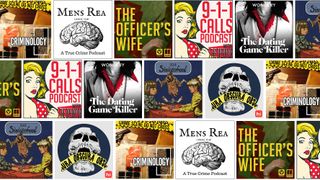
Maria Ricapito is a writer who lives in the Hudson Valley.
-
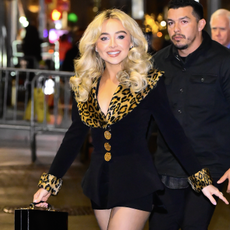 Sabrina Carpenter's Micro Shorts Are a Slice of Fashion History
Sabrina Carpenter's Micro Shorts Are a Slice of Fashion HistoryShe was brave to trot it out at the height of winter.
By Kelsey Stiegman Published
-
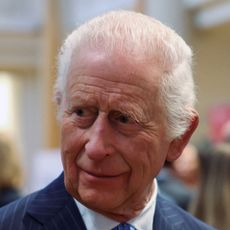 Tom Parker Bowles Says Stepfather King Charles Could be "Fantastic" at Another Job if He Wasn't Monarch
Tom Parker Bowles Says Stepfather King Charles Could be "Fantastic" at Another Job if He Wasn't MonarchJust imagine.
By Kristin Contino Published
-
 Cartier Celebrates 100 Years of Trinity With a Miami Pop-Up
Cartier Celebrates 100 Years of Trinity With a Miami Pop-UpA look inside the Art Basel event.
By Michaela Bushkin Published
-
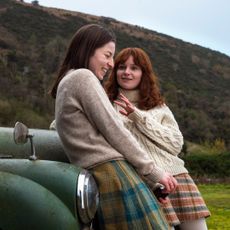 Is 'Say Nothing' Based on a True Story? Here's What to Know About Dolours and Marian Price
Is 'Say Nothing' Based on a True Story? Here's What to Know About Dolours and Marian PriceThe new FX series is set in Ireland during The Troubles.
By Quinci LeGardye Published
-
 Jaylen Barron Found the Compassion in Controversy in 'American Sports Story'
Jaylen Barron Found the Compassion in Controversy in 'American Sports Story'The actress who plays Shayanna Jenkins in the Ryan Murphy true-crime series discusses relating to the real-life figure.
By Quinci LeGardye Published
-
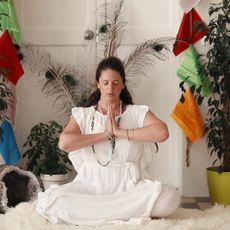 Who Is Guru Jagat? What to Know About the Kundalini Yoga Instructor From HBO's 'Breath of Fire'
Who Is Guru Jagat? What to Know About the Kundalini Yoga Instructor From HBO's 'Breath of Fire'HBO's latest true-crime doc explores the fall of a celebrity yoga instructor and her mysterious death.
By Quinci LeGardye Published
-
 'Woman of the Hour' Real-Life Story: Who Is the True Crime Movie Based On?
'Woman of the Hour' Real-Life Story: Who Is the True Crime Movie Based On?You'll be surprised by what's fact and what's fiction in the new Netflix movie directed by Anna Kendrick.
By Sadie Bell Published
-
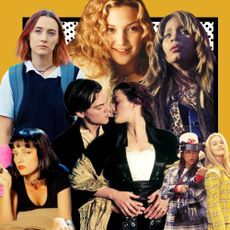 The 100 Best Movies of All Time: The Ultimate Must-Watch Films
The 100 Best Movies of All Time: The Ultimate Must-Watch FilmsWe consider these essential viewing.
By Quinci LeGardye Last updated
-
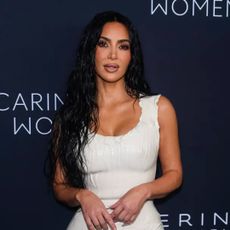 Kim Kardashian Pens Essay Demanding Erik and Lyle Menendez Be Freed From Prison Amid the Release of 'Monsters'
Kim Kardashian Pens Essay Demanding Erik and Lyle Menendez Be Freed From Prison Amid the Release of 'Monsters'"We owe it to those little boys who lost their childhoods, who never had a chance to be heard, helped or saved," she wrote.
By Sadie Bell Published
-
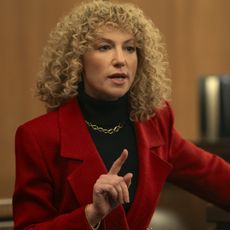 For Ari Graynor, Playing Leslie Abramson in 'Monsters' Was the 'Gift of a Lifetime'
For Ari Graynor, Playing Leslie Abramson in 'Monsters' Was the 'Gift of a Lifetime'The actress knew little about the Menendez brothers' case before getting cast as the defense attorney.
By Jessica Goodman Published
-
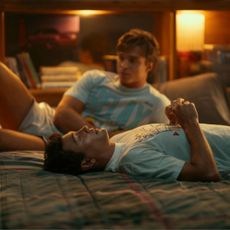 Ryan Murphy’s True-Crime Shows Have Always Been Sexual—Do They Have to Be?
Ryan Murphy’s True-Crime Shows Have Always Been Sexual—Do They Have to Be?‘Monsters’ and ‘American Sports Story’ majorly sexualize their real-life subjects—whose cases have already been sensationalized enough—to the detriment of the series’ plots.
By Quinci LeGardye Published